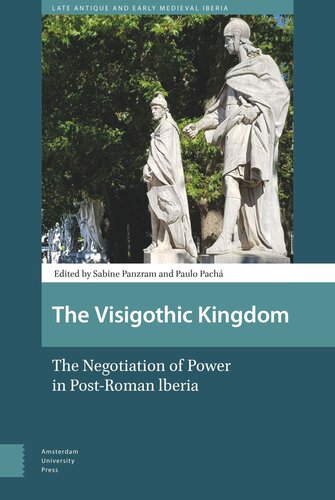

Most ebook files are in PDF format, so you can easily read them using various software such as Foxit Reader or directly on the Google Chrome browser.
Some ebook files are released by publishers in other formats such as .awz, .mobi, .epub, .fb2, etc. You may need to install specific software to read these formats on mobile/PC, such as Calibre.
Please read the tutorial at this link: https://ebookbell.com/faq
We offer FREE conversion to the popular formats you request; however, this may take some time. Therefore, right after payment, please email us, and we will try to provide the service as quickly as possible.
For some exceptional file formats or broken links (if any), please refrain from opening any disputes. Instead, email us first, and we will try to assist within a maximum of 6 hours.
EbookBell Team

4.8
94 reviewsHow did the breakdown of Roman rule in the Iberian peninsula eventually result in the formation of a Visigothic kingdom with authority centralised in Toledo? This collection of essays challenges the view that local powers were straightforwardly subjugated to the expanding central power of the monarchy. Rather than interpret countervailing events as mere 'delays' in this inevitable process, the contributors to this book interrogate where these events came from, which causes can be uncovered and how much influence individual actors had in this process. What emerges is a story of contested interests seeking cooperation through institutions and social practices that were flexible enough to stabilise a system that was hierarchical yet mutually beneficial for multiple social groups. By examining the Visigothic settlement, the interplay between central and local power, the use of ethnic identity, projections of authority, and the role of the Church, this book articulates a model for understanding the formation of a large and important early medieval kingdom.